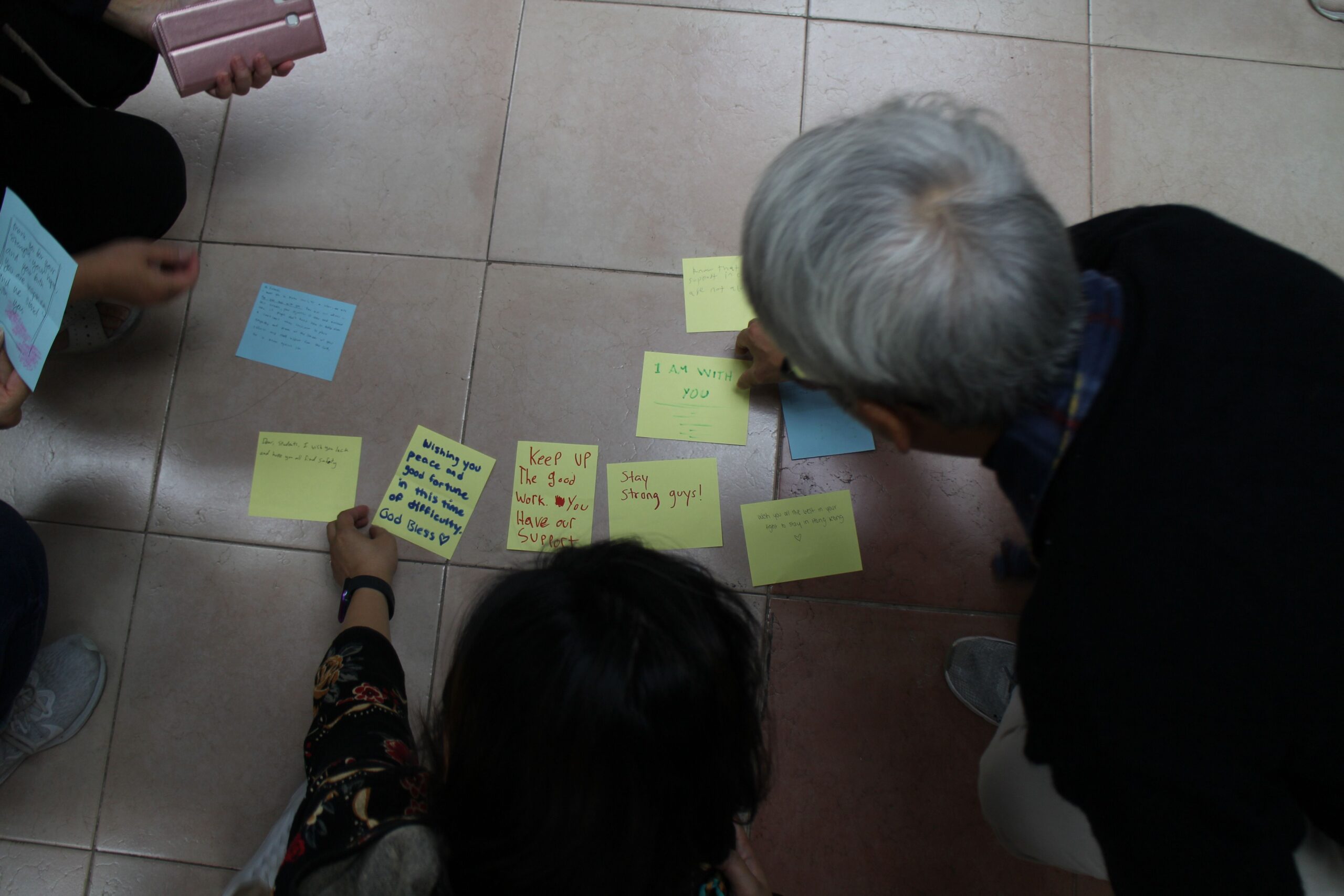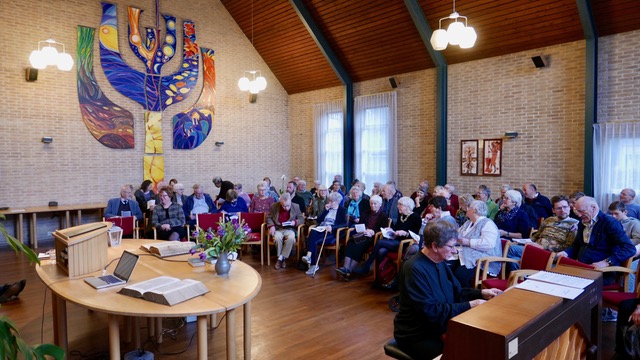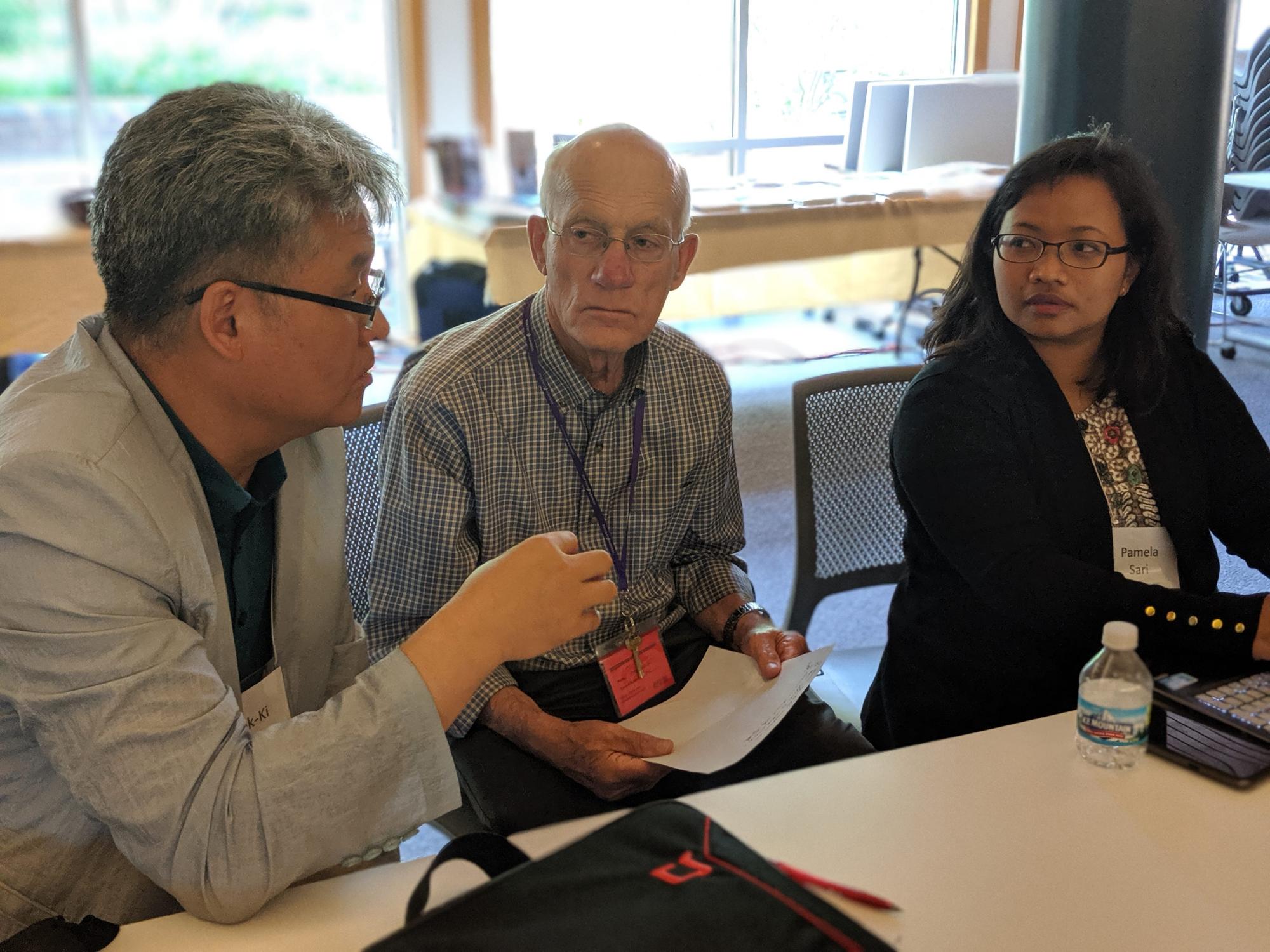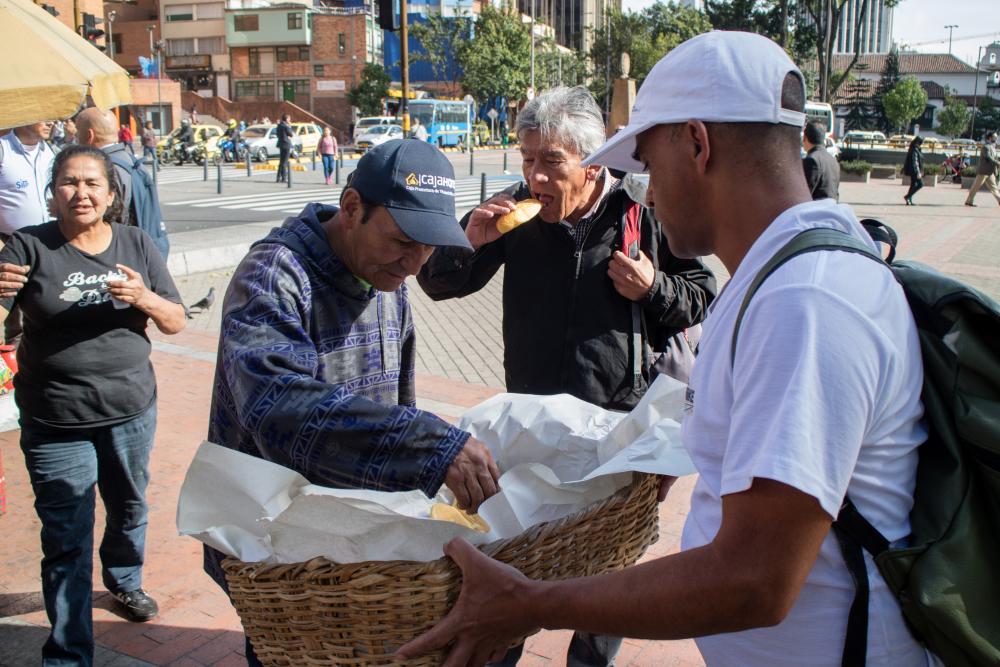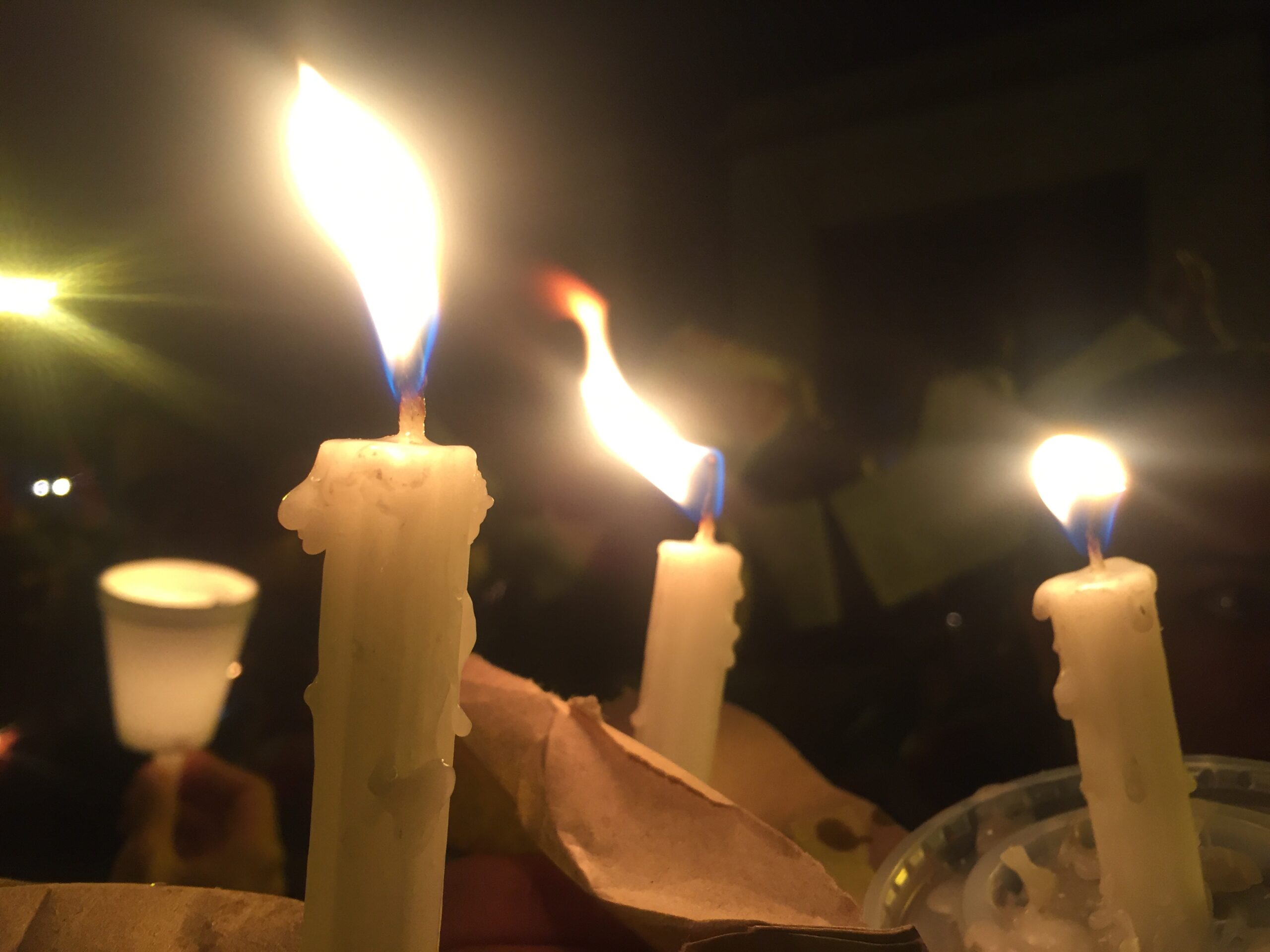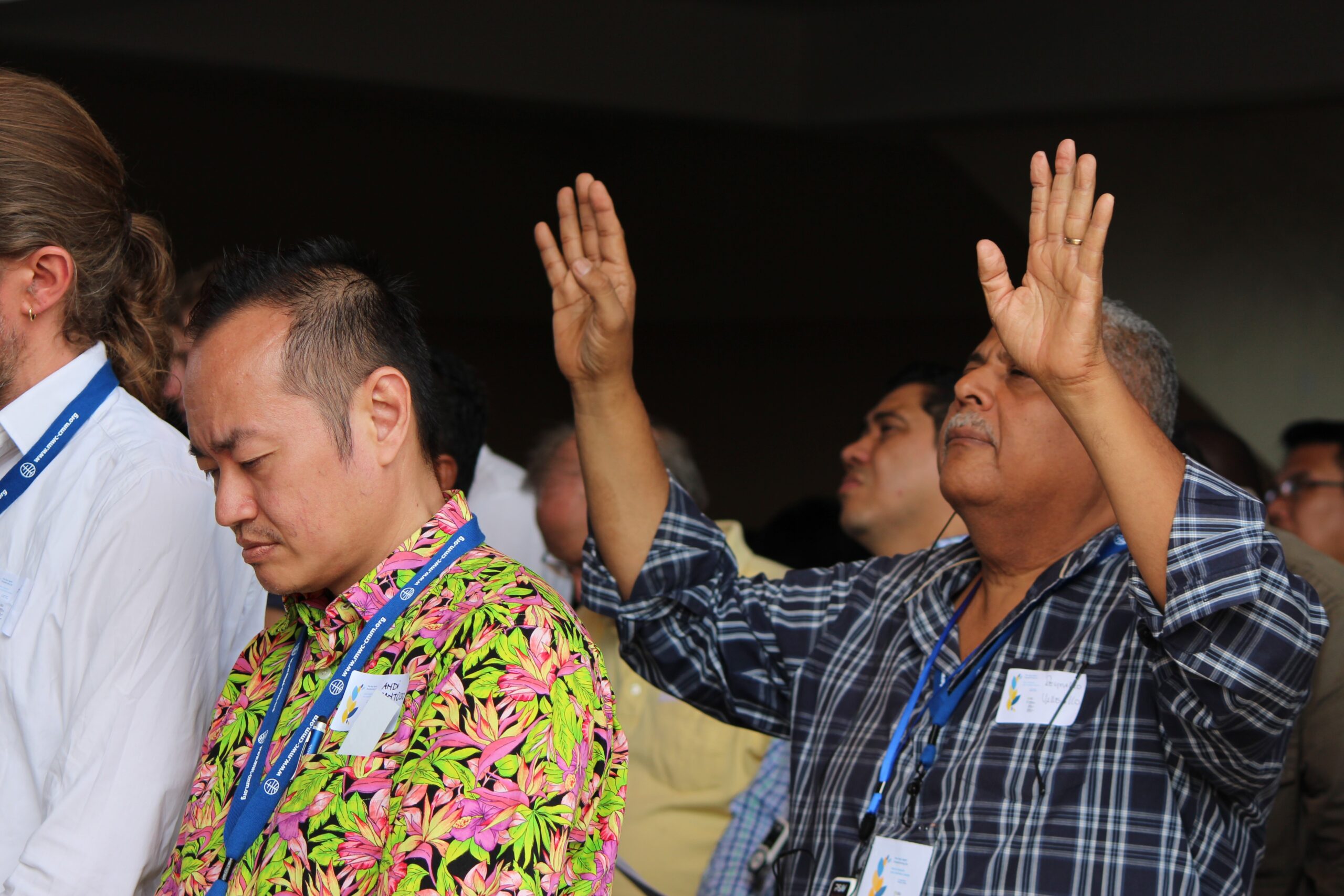-
Jesus Christ: our hope
The Bible undergirds human rights “And remember, I am with you always, to the end of the age” (Matthew 28:20). Here in Burkina Faso, we have been confronted with terrorist attacks for more than four years. It is an inexplicable situation, because even though the attacks are recurring, no one has claimed responsibility. Faced with
-
Solidarity with a Mennonite church at a crossroad
From 1–8 December 2019, a joint delegation from Mennonite World Conference’s Peace Commission and Deacons Commission visited three Mennonite churches in Hong Kong, other denominations and also some educational institutions to offer solidarity and to respond to the request for further perspectives on Anabaptist peacemaking. The delegation members included Peace Commission Chair and Coffee for Peace founder Joji Pantoja,
-
“A peace that passes all understanding”
Sermon notes for Peace Sunday Background to the Letter The Writer This is a profound letter written by Paul. Rarely do we take the time to think about the conditions under which this letter was written in Philippi, but it is important to analyze the context of the author a bit in order to understand
-
Preserve church documents, say church historians
“The global church works best when all her parts are engaged in sharing their stories,” said Patrick Obonde, director of missions at the Anabaptist Leadership Education Centre in Kenya. On 17–19 June 2019, historians, pastors and archivists did just that at “Power and Preservation: Enabling Access to the Sources Behind Our Stories,” at Goshen College,
-
Lessons from the crossfire: Remaining faithful to God’s peace
Colombia is in the early stages of a peace process signed in late 2016 between the largest guerilla group and the national government. Even though many of us had high hopes that the peace agreements would bring a turnaround in the country’s history of violence, many armed actors remain and proliferate cases of political corruption
-
MWC books: a global conversation
“Although each congregation has its own history and social and cultural background, it is common to experience the same sorts of conflicts, troubles, and situations,” says Ellul Yongha Bae, a Mennonite church leader and publisher in South Korea. “MWC Communications is very helpful to show that as Mennonite churches, we have raised similar questions and
-
A little more light
Like the chambers of a heart, the four MWC commissions serve the global community of Anabaptist-related churches, in the areas of deacons, faith and life, peace, mission. Commissions prepare materials for consideration by the General Council, give guidance and propose resources to member churches, and facilitate MWC-related networks or fellowships working together on matters of
-
A Mission Story of KMC – witnessing in faith
KMC traces her beginnings from Tanzania Mennonite Church (KMT). KMT inspired evangelists planted pioneer congregations in Kenya from 6 December 1942. Up till 1977 when the Conference was registered under Societies Act of Kenya, the KMT leadership oversaw the congregations.
-
A transforming Spirit of peace
Like the chambers of a heart, the four MWC commissions serve the global community of Anabaptist-related churches, in the areas of deacons, faith and life, peace, mission. Commissions prepare materials for consideration by the General Council, give guidance and propose resources to member churches, and facilitate MWC-related networks or fellowships working together on matters of
